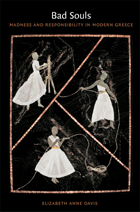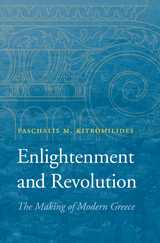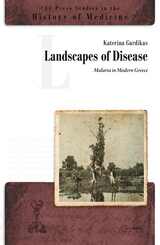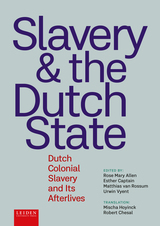

Halkias’s analysis combines telling fragments of contemporary Athenian culture, Greek history, media coverage of abortion and the declining birth rate, and fieldwork in Athens at an obstetrics/gynecology clinic and a family-planning center. Halkias conducted in-depth interviews with one hundred and twenty women who had had two or more abortions and observed more than four hundred gynecological exams at a state family-planning center. She reveals how intimate decisions and the public preoccupation with the low birth rate connect to nationalist ideas of race, religion, freedom, resistance, and the fraught encounter between modernity and tradition. The Empty Cradle of Democracy is a startling examination of how assumptions underlying liberal democracy are betrayed while the nation permeates the body and understandings of gender and sexuality complicate the nation-building projects of late modernity.

Greece sits at the center of a geopolitical storm that threatens the stability of the European Union. To comprehend how this small country precipitated such an outsized crisis, it is necessary to understand how Greece developed into a nation in the first place, Paschalis Kitromilides contends. Enlightenment and Revolution identifies the intellectual trends and ideological traditions that shaped a religiously defined community of Greek-speaking people into a modern nation-state--albeit one in which antiliberal forces have exacted a high price.
Kitromilides takes in the vast sweep of the Greek Enlightenment in the eighteenth and nineteenth centuries, assessing key developments such as the translation of Voltaire, Locke, and other modern authors into Greek; the conflicts sparked by the Newtonian scientific revolution; the rediscovery of the civilization of classical Greece; and the emergence of a powerful countermovement. He highlights Greek thinkers such as Voulgaris and Korais, showing how these figures influenced and converged with currents of the Enlightenment in the rest of Europe.
In reconstructing this history, Kitromilides demonstrates how the confrontation between Enlightenment ideas and Church-sanctioned ideologies shaped the culture of present-day Greece. When the Greek nation-state emerged from a decade-long revolutionary struggle against the Ottoman Empire in the early nineteenth century, the Enlightenment dream of a free Greek polity was soon overshadowed by a romanticized nationalist and authoritarian vision. The failure to create a modern liberal state at that decisive historic moment, Kitromilides insists, is at the root of Greece's recent troubles.

Malaria has existed in Greece since prehistoric times. Its prevalence fluctuated depending on climatic, socioeconomic and political changes. The book focuses on the factors that contributed to the spreading of the disease in the years between independent statehood in 1830 and the elimination of malaria in the 1970s.
By the nineteenth century, Greece was the most malarious country in Europe and the one most heavily infected with its lethal form, falciparum malaria. Owing to pressures on the environment from economic development, agrarian colonization and heightened mobility, the situation became so serious that malaria became a routine part of everyday life for practically all Greek families, further exacerbated by wars. The country’s highly fragmented geography and its variable rainfall distribution created an environment that was ideal for sustaining and spreading of diseases, which, in turn, affected the tolerance of the population to malaria. In their struggle with physical suffering and death, the Greeks developed a culture of avid quinine consumption and were likewise eager to embrace the DDT spraying campaign of the immediate post WW II years, which, overall, had a positive demographic effect.
READERS
Browse our collection.
PUBLISHERS
See BiblioVault's publisher services.
STUDENT SERVICES
Files for college accessibility offices.
UChicago Accessibility Resources
home | accessibility | search | about | contact us
BiblioVault ® 2001 - 2025
The University of Chicago Press









